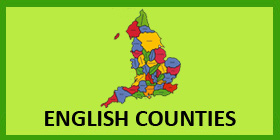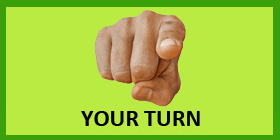




Back to the Into The 21st Century calendar



Ever since dear old Henry VIII founded the Church of England because he couldn't get his own way over marrying Anne Boleyn, the church had been the place where two people would get married. In fact it was the place where you had to get married even if you were not Church of England. Then in 1836 parliament passed an act which allowed non-religious civil marriages to be held in register offices. Protestant and Catholic couples could also now marry in their own churches. A civil official had to be present at these non-religious ceremonies and you needed a couple of witnesses.
Marriage, in those days, was, according to the dictionary, the joining of a man and woman in lawful union. Certain people, apart from those of different religions, would also have a civil ceremony. The church did not recognise divorce so if someone, like my father, had been married and divorced and wanted to marry again, he had to have a civil ceremony. This was what also caused a problem for Edward VIII back in 1936. I have to say that I also know a large number of people who don't believe in religion (perfectly acceptable, we are all free to make our choices) but still go for a church wedding because they like the idea. Not sure I like that really. If you don't like libraries, for example, it seems a bit much to pop in there because you like the shelves the books are on.
However, returning to marriages, not all men want to spend their lives with a woman and not all women want to spend their lives with a man. Some men prefer men, some women prefer women, Once it finally became legal for men to have such a relationship in 1967, it had always been legal for women, these people wanted to have the same rights as an ordinary married man and woman.
Some people will tell you that such relationships are not normal and in one sense they are correct. Normal means what we would expect, what the majority of people do. The majority of relationships in England are between a man and a woman. But just because someone does not conform, does not feel the same way as the majority, does not, in any way, mean they are wrong, bad, strange or weird. In a way, we are all normal but we are all unique. If I have a fear of heights, which I do, I feel that is normal and when I see people standing close to the edge of a cliff I think how can they do that. Because someone behaves differently to me does not mean there is anything wrong with them or anything wrong with me.
 As long as people are behaving legally they should be allowed to behave as they feel. They should not be criticised but accepted. It's sometimes hard to understand something different when we have been brought up to accept how most people behave. Cars have 4 wheels, normally. If you see a 6 wheeled car you would think that's not normal and yet, way back in the 1970s a 6 wheeled car appeared and actually won a Grand Prix. Six-wheeled cars can't win races; it did. People can't stand and look over the edge of a cliff; they can and do. And so relationships between people of the same sex can happen, do happen and if both people want it, should happen.
As long as people are behaving legally they should be allowed to behave as they feel. They should not be criticised but accepted. It's sometimes hard to understand something different when we have been brought up to accept how most people behave. Cars have 4 wheels, normally. If you see a 6 wheeled car you would think that's not normal and yet, way back in the 1970s a 6 wheeled car appeared and actually won a Grand Prix. Six-wheeled cars can't win races; it did. People can't stand and look over the edge of a cliff; they can and do. And so relationships between people of the same sex can happen, do happen and if both people want it, should happen.
This is all here because in December 2005 the Civil Partnerships Act allowed same-sex couples to have a legal relationship giving them virtually the same rights as a “normal” married couple. In March 2014 the law changed further and allowed same sex marriages.
Something for you to think about here. I believe that we should now forget about the word marriage. It did mean, as I said, the union of a man and woman and so, without changing the definition of the word marriage, I don't think you can have a same sex marriage. I think everyone, male/female, male/male, female/female should have a partnership. You can then have a civil partnership or a religious partnership and we are all equal and treated equally as we should be. I also think this would emphasise that both people in a partnership are equal, something that in the old days certainly wasn't true of a marriage.
On 12 March 1994, over 460 years after Henry VIII set up the Church of England, the very first women priests were ordained into the Church of England. There were 32 women in the first group.
Twenty years later the very first female bishop was consecrated, which means appointed, as Bishop of Stockport. Her name is Libby Lane and, although not among that first group of 32, she was ordained as a priest in 1994 too.
Forward to 2015AD

